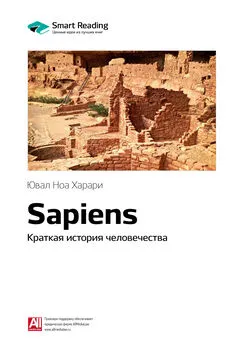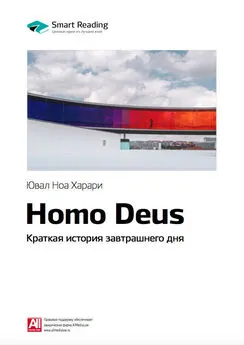Юваль Ной Харари - Homo Deus. Краткая история будущего
- Название:Homo Deus. Краткая история будущего
- Автор:
- Жанр:
- Издательство:Синдбад
- Год:2018
- Город:Москва
- ISBN:978-5-906837-92-9
- Рейтинг:
- Избранное:Добавить в избранное
-
Отзывы:
-
Ваша оценка:
Юваль Ной Харари - Homo Deus. Краткая история будущего краткое содержание
Что произойдет, когда Google и Facebook будут лучше, чем мы сами, знать наши вкусы, личные симпатии и политические предпочтения? Что будут делать миллиарды людей, вытесненных компьютерами с рынка труда и образовавших новый, бесполезный класс? Как воспримут религии генную инженерию? Каковы будут последствия перехода полномочий и компетенций от живых людей к сетевым алгоритмам? Что должен предпринять человек, чтобы защитить планету от своей же разрушительной силы?..
Главное сейчас, полагает Харари, – осознать, что мы находимся на перепутье, и понять, куда ведут пути, простирающиеся перед нами. Мы не в силах остановить ход истории, но можем выбрать направление движения.
Homo Deus. Краткая история будущего - читать онлайн бесплатно ознакомительный отрывок
Интервал:
Закладка:
256
Tomas Nagel, ‘What Is It Like to Be a Bat?’, Philosophical Review 83:4 (1974), 435–450.
257
Michael J. Noad et al., ‘Cultural Revolution in Whale Songs’, Nature 408:6812 (2000), 537; Nina Eriksen et al., ‘Cultural Change in the Songs of Humpback Whales ( Megaptera novaeangliae ) from Tonga’, Behavior 142:3 (2005), 305–328; E. C. M. Parsons, A. J. Wright and M. A. Gore, ‘Te Nature of Humpback Whale ( Megaptera novaeangliae ) Song’, Journal of Marine Animals and Teir Ecology 1:1 (2008), 22–31.
258
C. Bushdid et al., ‘Human can Discriminate More than 1 Trillion Olfactory Stimuli’, Science 343:6177 (2014),1370–1372; Peter A. Brennan and Frank Zufall, ‘Pheromonal Communication in Vertebrates’, Nature 444:7117 (2006), 308–315; Jianzhi Zhang and David M. Webb, ‘Evolutionary Deterioration of the Vomeronasal Pheromone Transduction Pathway in Catarrhine Primates’, Proceedings of the National Academy of Sciences 100:14 (2003), 8337–8341; Bettina Beer, ‘Smell, Person, Space and Memory’, Experiencing New Worlds , ed. Jurg Wassmann and Kathrina Stockhaus (New York: Berghahn Books, 2007), 187–200; Niclas Burenhult and Majid Asifa, ‘Olfaction in Aslian Ideology and Language’, Sense and Society 6:1 (2011), 19–29; Constance Classen, David Howes and Anthony Synnott, Aroma: Te Cultural History of Smell (London: Routledge, 1994); Amy Pei-jung Lee, ‘Reduplication and Odor in Four Formosan Languages’, Language and Linguistics 11:1 (2010): 99–126;Walter E. A. van Beek, ‘Te Dirty Smith: Smell as a Social Frontier among the Kapsiki/ Higi of North Cameroon and North-Eastern Nigeria’, Africa 62:1 (1992), 38–58; Ewelina Wnuk and Asifa Majid, ‘Revisiting the Limits of Language: Te Odor Lexicon of Maniq’, Cognition 131 (2014), 125–138.
Впрочем, некоторые ученые считают, что в ослаблении наших обонятельных способностей повинны куда более древние эволюционные процессы. См.: Yoav Gilad et al., ‘Human Specifc Loss of Olfactory Receptor Genes’, Proceedings of the National Academy of Sciences 100:6 (2003), 3324–3327; Atushi Matsui, Yasuhiro Go and Yoshihito Niimura, ‘Degeneration of Olfactory Receptor Gene Repertories in Primates: No Direct Link to Full Trichromatic Vision’, Molecular Biology and Evolution 27:5 (2010), 1192–1200; Graham M. Hughes, Emma C. Teeling and Desmond G. Higgins, “Loss of Olfactory Receptor Function in Hominin Evolution”, PLOS One 9:1 (2014), e84714.
259
Matthew Crawford, Te World Beyond Your Head: How to Flourish in an Age of Distraction (London: Viking, 2015).
260
Turnbull and Solms, TeBrain and the Inner World , 136–159; Kelly Bulkeley, Visions of the Night: Dreams, Religion and Psychology (New York: State University of New York Press, 1999); Andreas Mavrematis, Hypnogogia: Te Unique State of Consciousness Between Wakefulness and Sleep (London: Routledge, 1987); Brigitte Holzinger, Stephen LaBerge and Lynn Levitan, ‘Psychophysiological Correlates of Lucid Dreaming’, American Psychological Association 16:2 (2006): 88–95; Watanabe Tsuneo, ‘Lucid Dreaming: Its Experimental Proof and Psychological Conditions’, Journal of International Society of Life Information Science 21:1 (2003): 159–162; Victor I. Spoormaker and Jan van den Bout, ‘Lucid Dreaming Treatment for Nightmares: A Pilot Study’, Psychotherapy and Psychosomatics 75:6 (2006): 389–394.
261
От лат. data (данные).
262
См., к примеру: Kevin Kelly, What Technology Wants (New York: Viking Press, 2010); César Hidalgo, Why Information Grows: Te Evolution of Order, From Atoms to Economies (New York: Basic Books, 2015); Howard Bloom, Global Brain: Te Evolution of Mass Mind from the Big Bang to the 21st Century (Hoboken: Wiley, 2001); DuBravac, Digital Destiny.
263
Friedrich Hayek, ‘Te Use of Knowledge in Society,’ American Economic Review 35:4 (1945): 519–530.
264
Kiyohiko G. Nishimura, Imperfect Competition Diferential Information and the Macro-foundations of Macro-economy (Oxford: Oxford University Press, 1992); Frank M. Machovec, Perfect Competition and the Transformation of Economics (London: Routledge, 2002); Frank V. Mastrianna, Basic Economics , 16th edn (Mason: South-Western, 2010), 78–89; Zhiwu Chen, ‘Freedom of Information and the Economic Future of Hong Kong’, Hong Kong Centre for Economic Research 74 (2003); Randall Morck, Bernard Yeung and Wayne Yu, ‘Te Information Content of Stock Markets: Why Do Emerging Markets Have Synchronous Stock Price Movements?’, Journal of Financial Economics 58:1 (2000), 215–260; Louis H. Ederington and Jae Ha Lee, ‘How Markets Process Information: News Releases and Volatility’, Journal of Finance 48:4 (1993), 1161–1191; Mark L. Mitchell and J. Harold Mulherin, ‘Te Impact of Public Information on the Stock Market’, Journal of Finance 49:3 (1994): 923–950; JeanJacques Lafont and Eric S. Maskin, ‘Te Efcient Market Hypothesis and Insider Trading on the Stock Market’, Journal of Political Economy 98:1 (1990), 70–93; Steven R. Salbu, ‘Diferentiated Perspectives on Insider Trading: Te Efect of Paradigm Selection on Policy’, St John’s Law Review 66:2 (1992), 373–405.
265
Valery N. Soyfer, ‘New Light on the Lysenko Era’, Nature 339:6224 (1989), 415–420; Nils Roll-Hansen, ‘Wishful Science: Te Persistence of T. D. Lysenko’s Agrobiology in the Politics of Science’, Osiris 23:1 (2008), 166–188.
266
William H. McNeill and J. R. McNeill, Te Human Web: A Bird’s-Eye View of World History (New York: W. W. Norton, 2003).
267
Aaron Swartz, ‘Guerilla Open Access Manifesto’, July 2008, accessed 22 December 2014, https://ia700808.us.archive.org/17/items/GuerillaOpenAccessManifesto/Goamjuly2008.pdf; Sam Gustin, ‘Aaron Swartz, Tech Prodigy and Internet Activist, Is Dead at 26’, Time , 13 January 2013, accessed 22 December 2014, http://business.time.com/2013/01/13/tech-prodigy-and-internet-activist-aaron-swartz-commits-suicide; Todd Leopold, ‘How Aaron Swartz Helped Build the Internet’, CNN, 15 January 2013, 22 December 2014, http://edition.cnn.com/2013/01/15/tech/web/aaron-swartz-internet/; Declan McCullagh, ‘Swartz Didn’t Face Prison until Feds Took Over Case, Report Says’, CNET, 25 January 2013, accessed 22 December 2014, http://news.cnet.com/8301–13578_3–5756592738/swartz-didnt-face-prison-until-feds-took-over-case-report-says/.
268
John Sousanis, ‘World Vehicle Population Tops 1 Billion Units’, Wardsauto , 15 August 2011, accessed 3 December 2015, http://wardsauto.com/news-analysis/world-vehicle-population-tops-1-billion-units.
269
Публикации в журналах Nature или Science крайне престижны, так как статьи из них часто цитируются, а автор получает широкую известность даже за пределами своей области науки.
270
‘No More Woof’, https://www.indiegogo.com/projects/no-more-woof.
Интервал:
Закладка:
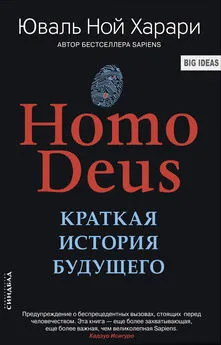
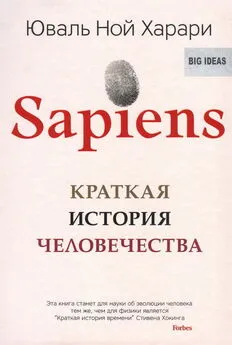
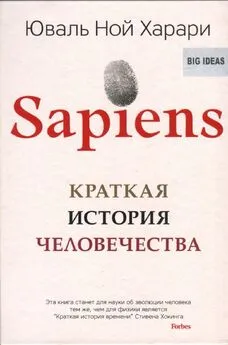
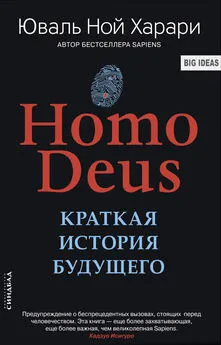
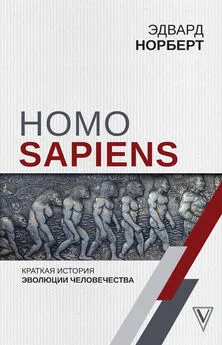
![Жак Аттали - Краткая история будущего [Мир в ближайшие 50 лет]](/books/1076384/zhak-attali-kratkaya-istoriya-buduchego-mir-v-blizhajsh.webp)
![Юваль Ной Харари - 21 урок для XXI века [Версия с комментированными отличиями перевода]](/books/1080711/yuval-noj-harari-21-urok-dlya-xxi-veka-versiya-s-ko.webp)
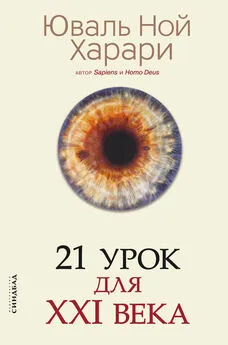
![Юваль Ной Харари - Sapiens. Краткая история человечества [litres]](/books/1102059/yuval-noj-harari-sapiens-kratkaya-istoriya-cheloveche.webp)
